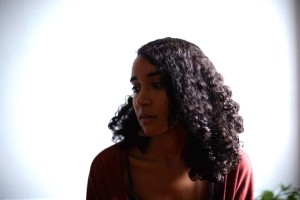 You’ve written profoundly about the Afro-Latinidad experience in Brooklyn. What are current issues or dynamics that concern you now? What has pulled you to write about your identity and community? I’m drawn to writing about Afro-Latinidad, and about Brooklyn, because Toni [Morrison] told us to write what we’ve always wanted to read. I think writing helps me make sense of the questions I’ve long grappled with – about Blackness, and the mutability of identity, and how home makes us (& how we make home). Also Jacqueline Woodson was my favorite writer when I was a kid and she writes about Brooklyn as though it’s a character; that approach resonated with me deeply. So I try to write about BK with a similar level of care.
You’ve written profoundly about the Afro-Latinidad experience in Brooklyn. What are current issues or dynamics that concern you now? What has pulled you to write about your identity and community? I’m drawn to writing about Afro-Latinidad, and about Brooklyn, because Toni [Morrison] told us to write what we’ve always wanted to read. I think writing helps me make sense of the questions I’ve long grappled with – about Blackness, and the mutability of identity, and how home makes us (& how we make home). Also Jacqueline Woodson was my favorite writer when I was a kid and she writes about Brooklyn as though it’s a character; that approach resonated with me deeply. So I try to write about BK with a similar level of care.
When do you feel most “we”? When do you feel most “I”? I feel most “we” when I imagine history as a living thing with which we’re still in conversation. Community is the people we build with now, the people we love on now, but it can also be our ancestors, it can also be multigenerational. I feel most “I” when I’m in my apartment, listening to the same songs over and over again, cooking food the way I like it, indulging in those things that are specific to me.
Tell us about your Harlem. I think it’s been important for me to understand that Harlem is not mine. I spend most of my time here, but – I think because I’m from Brooklyn, which has seen such robust gentrification – I’m skeptical about the claims we make to place, and to a community. I don’t believe I have a claim to Harlem. I’m grateful to live in a neighborhood with this legacy of Black artistry and movement-building and cultural survival. But I also see a commodification of that legacy, packaged for new folks who don’t necessarily share any intimacy with it. So I’ve been trying to figure out my relationship to Harlem, as a New Person.
What urgent advice would you offer emerging writers? I’m still very much emerging! I guess what I try to remind myself is: don’t stake your value as a person on the reception of your work in public.
